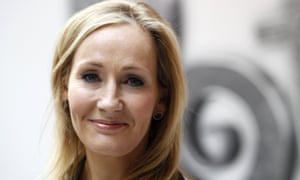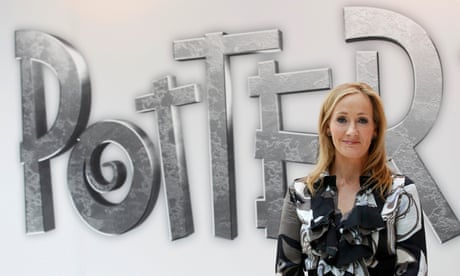Fahd Hussain in The Dawn
Imran Khan’s supporters can see no wrong in what he says or does. We have witnessed this phenomenon unfurl itself like a lazy python these last few years, but more so with greater intensity during Khan’s pre- and post-ouster days. On display is a textbook case of blind devotion. Such devotion entails a deliberate — or perhaps subconscious — suspension of critical thinking. Only mass hysteria can explain absolute rejection of facts and a willing embrace of free-flying rhetoric untethered by verifiable information.
And yet, does this really make sense?
Bounce this explanation off actual people around you — friends, families, acquaintances — and you start to feel uncomfortable with the laziness of the explanation.
On your left, for instance, is the professor with a doctorate in natural sciences from one of the top universities in the world, someone whose entire educational foundation and career is based on the power of empirical evidence and scientific rationalism — and here he is hysterically arguing why the PTI deputy speaker’s violation of the constitution is no big deal. On your right is the top executive of a multinational company with an MBA from an Ivy League school, someone whose training and practice of craft is based on hard data crunched with power of sharp logic — and here he is frothing at the mouth in delirium while yelling that the Joe Biden administration actually conspired with the entire top leadership of the PDM to topple Imran Khan.
These are rational people, you remind yourself. You have known them for years, and admired them for their academic and professional achievements — perhaps even been motivated by their pursuit of success — and yet you see them experiencing a strange quasi-psychedelic meltdown in full public glare. It just does not add up.
It is not just these metaphorical persons — resembling many real ones in all our lives, as it so happens — but hundreds of thousands of Pakistanis from all walks of life locked inside a massive groupthink spurred by sweeping generalisations dressed up as political narrative. No argument, no logic and no rationale — no, nothing makes sense, and nothing is acceptable or even worth considering if it does not gel perfectly with their preconceived notions.
What we are witnessing is a seminal moment in our political evolution — progressive or regressive is a matter of personal perspective — and this moment is situated bang in the centre of a social and political transformation so impactful that it could define the shape of our society for the years ahead.
In an acutely polarised environment, it is easy to pass judgement on those sitting across the fence. Most of us yield to this temptation. When we do, we help reinforce caricatures that have little resemblance to people around us, and these fail to explain why people believe what they believe.
So why do such a large number of people believe what they believe even when overwhelming evidence points towards the opposite conclusion? In our context, this may be due in part to the visceral politicisation of the national discourse and the deep personal loathing of rivals that the PTI has injected into what should otherwise be a contest of ideas and ideologies. At the heart of this is the revulsion against the system because it has not really delivered what it exists to deliver: improving the lives of citizens through protection of rights and provision of services. It is therefore easy and convenient to blame the system, and in turn all those institutions that constitute the system as a whole.
Imran Khan has modelled himself well as the anti-system crusader. He insists very persuasively that he has neither been co-opted nor corrupted by the system; that when he says he wants to change this system, it implies that there is nothing sacrosanct about the system, or for that matter, about the exalted institutions that make up the system. He has been able to establish this narrative successfully because the central theme of his narrative is, in fact, true: the system has not delivered.
But the argument is only half done here. The other half is perhaps even more crucial — diagnosing why it has not delivered. It is here that Imran Khan goes off tangent. And he does so not just in terms of his solutions, but his own shockingly weak performance as the prime minister who had it all but could not do much with it. In fact, after nearly four years in power, and having precious little to show for them, Imran has for all practical purposes joined the long line of those who are, in fact, responsible for the sad reality that the system has not delivered.
But someone forgot to break this news to the PTI supporters.
In essence then, if Pakistani society wants to row itself back from this stage where the electorate is at war with itself on a battlefield littered with semi-truths, partial facts and outright lies, it will need to face up to a bitter fact: what we see unfolding in front of us is the contamination of decades of social and educational decay injected with deadly and potent steroids of propaganda, brainwashing and ‘otherisation’ of anyone who looks, speaks, acts or believes differently.
Those social studies books you read in school and thought you would outgrow — well, now you know how wrong you were?
In this cesspool, everyone points fingers at everyone else when no one really has the right to do so. Seven decades of wrong governance laced with wrong priorities and fuelled by wrong policies have led us to a stage today where traditional parties cannot stomach the aspirations of a new generation, and new parties cannot digest the requirements of what constitutes governance, statecraft and institutional equilibrium within a democratic society.
And you thought holding elections was our biggest problem today. Be afraid. Be very afraid.
'People will forgive you for being wrong, but they will never forgive you for being right - especially if events prove you right while proving them wrong.' Thomas Sowell
Search This Blog
Showing posts with label rejection. Show all posts
Showing posts with label rejection. Show all posts
Saturday, 23 April 2022
The state of Pakistan: Isn't the support for BJP similar?
Tuesday, 3 May 2016
A CV of failure shows not every venture has a happy ending – and that’s OK
Julian Baggini in The Guardian


CV of failures: Princeton professor publishes résumé of his career lows
But the irony runs deeper. Haushofer probably would not have paraded his failures in the first place if he were not now a high-flying Princeton professor. Admitting to past defeats is easy if ultimately you have emerged the victor.
Haushofer’s confession has been praised as a breath of fresh air, a brave display of honesty. But sharing our past trials and tribulations is mainstream, not radical. No success story is complete without the chapter about overcoming adversity. Indeed, I often suspect that many people exaggerate their earlier problems in order to fit this standard narrative and if they don’t, others will do it for them. JK Rowling was a single mother on benefits, but others talked this up into a “rags to riches” fairy story. She has explicitly denied that she ever wrote in cafes to escape from an unheated flat, a story that never made much sense, given the price of a cappuccino in Edinburgh.
It is much harder to, if not celebrate, at least embrace failures when they are more than temporary setbacks. Would Hausfhofer have shared his list of rejections had they not been followed by acceptances? If so, he is braver and more honest than most. Increasingly our culture peddles the myth that with enough belief, determination, and perhaps even hard work, you can achieve anything you want. So if you do terminally fail, that can only mean that you have not tried, believed, or worked enough.
This is pernicious nonsense. The harder truth to accept is that success is never guaranteed. Luck plays its part, but there is also the simple fact that we do not know what we can achieve until we try. Success requires a happy coincidence of talent, effort and fortune, so if you try to do anything of any ambition, the possibility of failure is ever present. When our plans fail, there is no reason to think that necessarily reveals a deep failure in ourselves.
I’m not sure what I was thinking when I saved all those rejection letters. At the time, I didn’t know whether they would record mere setbacks or a thwarted ambition. But either way, they would have served a purpose. Had I not go on to have a writing career, they would have reminded me that I did at least try and that the reason I did not succeed was not for want of effort. That reminder would be sobering and humbling, which is why it would have been so valuable. If we are to go to our graves at peace with ourselves, we must be able to accept our disappointments and limitations as well as our successes.
Since I have gone on to earn my living by writing, I could wrongly take them to be proof of how my refusal to take no for an answer ensured that my talents were eventually recognised. The more honest way to see them is as evidence of how fortunate I was that eventually someone chose to take a punt on me.
In Hollywood, every failure simply serves to make the eventual success more inevitable. In real life, every past failure should be a reminder that a happy outcome was never guaranteed. Our failed relationships, terrible jobs and bad holidays reflect our characters and the reality of our lives at least as much as the good times, which often hang on a thread. Thinking more about our failures might just help us to be more grateful for the successes we enjoy and kinder to ourselves when, more often, they elude us.

‘JK Rowling was a single mother on benefits, but others talked this up into a rags to riches fairy story.’ Photograph: Murdo Macleod for the Guardian
In my memory box I have a fine collection of rejection letters from editors and agents unimpressed with my first attempt at a book. Unsurprisingly, these mementoes of failure are the odd ones out in a collection that generally catalogues the highs rather than the lows of my life. We do not generally keep pictures of ex-partners from disastrous relationships on our mantelpieces, or photos of our sullen selves trapped inside a rain-swept, half-built motel.
But according to Princeton psychology professor Johannes Haushofer, we should do more to remember our failures. He has tweeted a CV of his setbacks, including lists of degree programmes he did not get into; papers that were rejected by journals; and academic positions, research funding and fellowships he did not get. Ironically, this little stunt has been a huge hit. “This darn CV of Failures has received way more attention that my entire body of academic work,” he said. Expect a TED talk and book to follow.
In my memory box I have a fine collection of rejection letters from editors and agents unimpressed with my first attempt at a book. Unsurprisingly, these mementoes of failure are the odd ones out in a collection that generally catalogues the highs rather than the lows of my life. We do not generally keep pictures of ex-partners from disastrous relationships on our mantelpieces, or photos of our sullen selves trapped inside a rain-swept, half-built motel.
But according to Princeton psychology professor Johannes Haushofer, we should do more to remember our failures. He has tweeted a CV of his setbacks, including lists of degree programmes he did not get into; papers that were rejected by journals; and academic positions, research funding and fellowships he did not get. Ironically, this little stunt has been a huge hit. “This darn CV of Failures has received way more attention that my entire body of academic work,” he said. Expect a TED talk and book to follow.

CV of failures: Princeton professor publishes résumé of his career lows
But the irony runs deeper. Haushofer probably would not have paraded his failures in the first place if he were not now a high-flying Princeton professor. Admitting to past defeats is easy if ultimately you have emerged the victor.
Haushofer’s confession has been praised as a breath of fresh air, a brave display of honesty. But sharing our past trials and tribulations is mainstream, not radical. No success story is complete without the chapter about overcoming adversity. Indeed, I often suspect that many people exaggerate their earlier problems in order to fit this standard narrative and if they don’t, others will do it for them. JK Rowling was a single mother on benefits, but others talked this up into a “rags to riches” fairy story. She has explicitly denied that she ever wrote in cafes to escape from an unheated flat, a story that never made much sense, given the price of a cappuccino in Edinburgh.
It is much harder to, if not celebrate, at least embrace failures when they are more than temporary setbacks. Would Hausfhofer have shared his list of rejections had they not been followed by acceptances? If so, he is braver and more honest than most. Increasingly our culture peddles the myth that with enough belief, determination, and perhaps even hard work, you can achieve anything you want. So if you do terminally fail, that can only mean that you have not tried, believed, or worked enough.
This is pernicious nonsense. The harder truth to accept is that success is never guaranteed. Luck plays its part, but there is also the simple fact that we do not know what we can achieve until we try. Success requires a happy coincidence of talent, effort and fortune, so if you try to do anything of any ambition, the possibility of failure is ever present. When our plans fail, there is no reason to think that necessarily reveals a deep failure in ourselves.
I’m not sure what I was thinking when I saved all those rejection letters. At the time, I didn’t know whether they would record mere setbacks or a thwarted ambition. But either way, they would have served a purpose. Had I not go on to have a writing career, they would have reminded me that I did at least try and that the reason I did not succeed was not for want of effort. That reminder would be sobering and humbling, which is why it would have been so valuable. If we are to go to our graves at peace with ourselves, we must be able to accept our disappointments and limitations as well as our successes.
Since I have gone on to earn my living by writing, I could wrongly take them to be proof of how my refusal to take no for an answer ensured that my talents were eventually recognised. The more honest way to see them is as evidence of how fortunate I was that eventually someone chose to take a punt on me.
In Hollywood, every failure simply serves to make the eventual success more inevitable. In real life, every past failure should be a reminder that a happy outcome was never guaranteed. Our failed relationships, terrible jobs and bad holidays reflect our characters and the reality of our lives at least as much as the good times, which often hang on a thread. Thinking more about our failures might just help us to be more grateful for the successes we enjoy and kinder to ourselves when, more often, they elude us.
Monday, 28 March 2016
The only way to achieve anything is to become comfortable with rejection.

‘JK Rowling tweeted two rejection letters that she’d received in response to manuscripts written under the pen name Robert Galbraith.’ Photograph: Suzanne Plunkett/REUTERS
Linda Blair in The Guardian
There’s a poster on the wall of the gym I use, a place frequented by many aspiring British athletes. It says simply: “You lose 100% of the chances you don’t take.”
No one likes to be rejected, to take a chance, to put in huge effort only to be rebuffed. But if you want to succeed at anything in life, you have to put yourself forward. You have to take the chance that you’ll be rejected. There’s no choice – what it says on that poster is absolutely right. The alternative is to be 100% certain you’ll never realise your dreams.

Rejection is more the norm than the exception for authors, as JK Rowling reminded everyone last week, when she tweeted two rejection letters that she’d received – after her success with Harry Potter – in response to manuscripts written under the pen name Robert Galbraith. The bestselling author Joanne Harris responded: “I got so many rejections for Chocolat that I made a sculpture.” They’re far from the only well-known authors to have been knocked back – James Joyce, George Orwell and John le Carré all suffered a number of rejections before their manuscripts were finally accepted. And yet, despite the hurt of rejection and the work involved in rewriting, everyone knows their work is better as a result.
Why do we find rejection so upsetting? After all, it’s almost never life-threatening to be rejected. The reason lies in our interdependence.
Human beings need one another in order to thrive, particularly at the beginning of our lives. During that period of development, if no one cares about a baby enough to offer loving care and attention, that baby will die. That’s why it feels so important to be approved of, to be liked and accepted by others – at certain times it’s the only way we can survive. You can see now why the more you value the approval and opinion of the person who’s judging you, the more upset you’ll be if they reject you. This also explains why rejection hurts more when your offerings are personal, more an expression of who you are or hope to be rather than something you’ve simply been asked to throw together, for example an assignment for a school subject you don’t enjoy or a requirement at work.
It’s one thing to understand why you feel bad when you’ve been rejected. But why stop there? Why not take things a step further? Instead of thinking about rejection as something you hope to avoid, see if you can make it work for you rather than distress you. When you do this, rejection will actually help you create something even better than the offering that’s been cast aside. Here’s how.
Start by learning not to take a rejection personally. Instead of saying, “What’s wrong with me?”, step back. See if you can figure out what might be lacking in what you’ve created, or in the way you’ve gone about trying to achieve your dream. The artist Dexter Dalwood, speaking recently to creative arts students at their graduation ceremony, warned his audience: “If you want your ideas to succeed, be prepared to be rejected. Often. It comes with the territory.”
Rejection is part of the process in manufacturing as well as in the creative arts.James Dyson, a man who changed our lives in a number of ways, including how we clean our homes and dry our hands, says he finds rejection helpful. His plan to create a bagless vacuum cleaner took 5,127 modifications, following numerous rejections from retailers. He told the BBC in an interview just after the launch of a more recent invention, the Airblade Tap, that “failure is the best medicine – as long as you learn something”.
Learning through failure is how rejection helps. It can spur you on to do it again, do it better. Anders Ericsson, a professor at the University of Colorado, observed the practice habits of violin students in Berlin from the age of five until they reached adulthood. He found that the most powerful predictor of success, of whether students became “elite” violinists, was how many hours of practice they put in, how determined they were to improve. The author Malcolm Gladwell popularised this idea, which has become known as the “10,000-hour rule”. It seems that it takes approximately 10,000 hours of dedication, of being criticised and reacting constructively to that criticism, to succeed and achieve true excellence.
The patients I see who are struggling with rejection often ask me when they should give up, at what point they should accept the rejections and stop trying. My answer is never. As long as you have a dream, something you believe in and wish to achieve, keep going.
A rejection doesn’t mean you failed. It means you tried. Try again.
Subscribe to:
Comments (Atom)